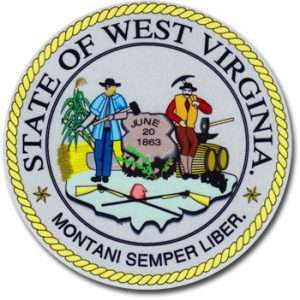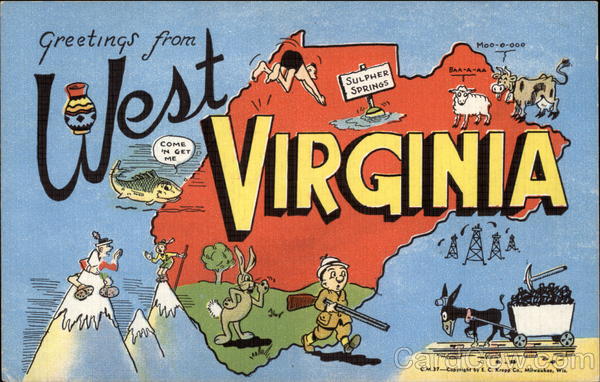West Virginia Waits for Governor to Sign Online Gambling Bill
The lead sponsor of a bill which would legalize online gambling in West Virginia, Delegate Jason Barrett, is confident that it will soon become law. It is not a done deal just yet, but HB 2934, the West Virginia Lottery Interactive Wagering Act, has cleared every major hurdle so far – and done so in a hurry – and is now waiting for Governor Jim Justice’s signature.
 No Problems for the Bill So Far
No Problems for the Bill So Far
Barrett (D-Berkeley, 61) introduced the bill in the House only a little more than a month ago, on February 8th. On February 22nd – both George Washington’s and my grandfather’s birthday (which is irrelevant to this discussion) – the bill passed the House. It passed the Senate with amendments last Friday, March 8th, by a 26-7 vote and then passed a final 78-18 vote in the House to approve the amendments on March 9th, the last day of the legislative session.
Now, as the process goes, the Governor must sign the bill for it to become law. According to the West Virginia legislative process, because the legislature has adjourned, he has 15 days from when the bill was passed to provide his autograph. It would be only five days if the legislature was in session. If Governor Justice does nothing, the bill automatically becomes law.
“I’m not surprised that we got it passed. I’m surprised that it sailed through as easily as it did,” Barrett told West Virginia’s MetroNews.
Don’t Get Too Excited Just Yet
Even if the bill becomes law as expected, it will be a long time before any online gambling sites launch in the state. The deadline for the West Virginia Lottery to establish regulation and licensing procedures is not until June 2020. And that’s just to get all the rules in place. The licensing process would still have to run its course, operators would have to get their platforms ready and all their ducks in a row, and regulations would have to be implemented. Seeing a single penny wagered online before 2021 may be a stretch.
The Lottery, which will oversee online gambling, is the body that wanted the later deadline for the regulations, which is understandable.
“I wanted to make sure that it was something they were agreeable to and comfortable with so, for that reason, I don’t anticipate a veto (from Governor Justice),” Barrett told MetroNews. “We kind of brought everybody to the table to make sure operators were on board, to make sure the Lottery was on board and that we could get the votes in the Legislature as well.”
Details Are Typical
There is nothing really groundbreaking in the bill; the language contained within is essentially what we have seen before in other states. The legislation permits just the existing brick-and-mortar casinos in West Virginia to apply for online gaming licenses. These five casinos are:
Hollywood Casino at Charles Town Races
Mardi Gras Casino & Resort
Mountaineer Casino, Racetrack & Resort
The Casino Club at The Greenbrier
Wheeling Island Hotel
Interestingly (or not, you be the judge), Governor Justice owns the Greenbrier Resort, so methinks that there is at least one casino that is a lock to be granted a license.
The initial cost of a five-year license would be $250,000, with five-year renewals running $100,000. Online gaming revenue would be taxed at a rate of 15 percent.
There is no “bad actor” clause in the bill, which is something some gambling bills have included in other states at one time or another in order to keep operators who accepted U.S. customers after the UIGEA passed in 2006 from being able to access the United States market. It is generally thought that a bad actor clause is aimed at PokerStars, the behemoth of the online poker industry, and for little other reason than to protect domestic operators from strong competition.
Because there is no bad actor clause, international operators like PokerStars could potentially get into the West Virginia market by partnering with one of the five casinos to provide an online gambling platform. We have seen this in other states like New Jersey, so there is no reason to think that it wouldn’t happen in West Virginia. The casinos are unlikely to want to build their own software platforms from scratch.
Delegate Barrett believes that online poker and online blackjack will be the top offerings by the gaming sites, though naturally, the sites can decide for themselves what games they will offer. Barrett is probably underestimating the appeal of internet slots and video poker for the casual gambler, but that is neither here nor there.
As with most people who are in favor of legalizing and regulating online gambling, one of Barrett’s aims is to protect the consumers in his state.
“Right now, online poker is illegal and it’s being done overseas and there are certainly some concerns there with the integrity of the games as well as making sure players are paid because it’s (currently) completely unregulated being offshore,” he said.



















COMMENTS